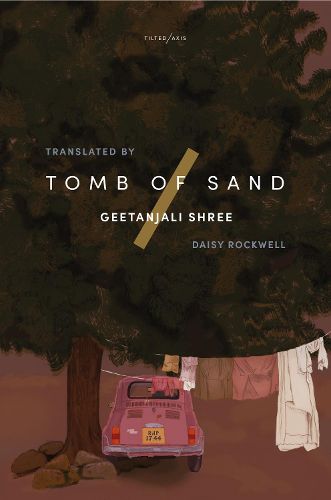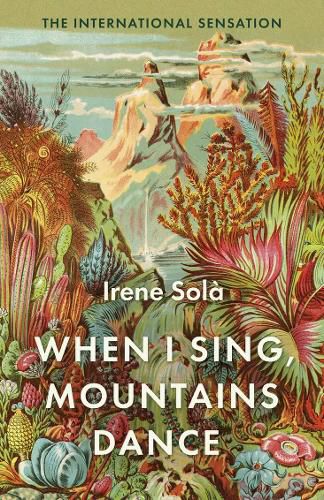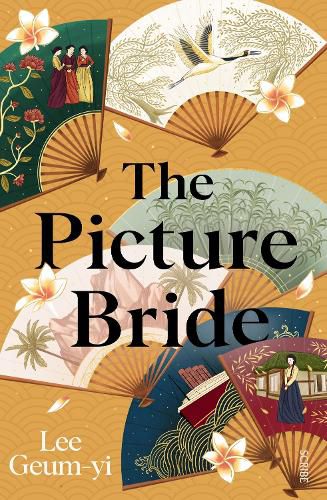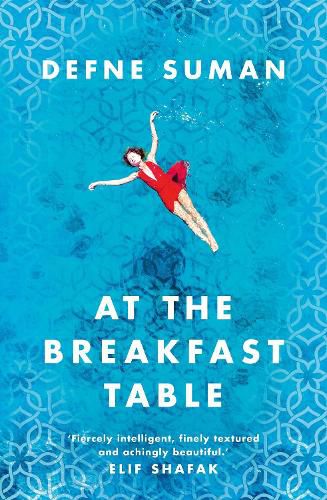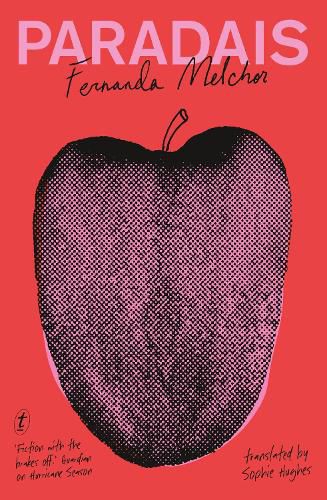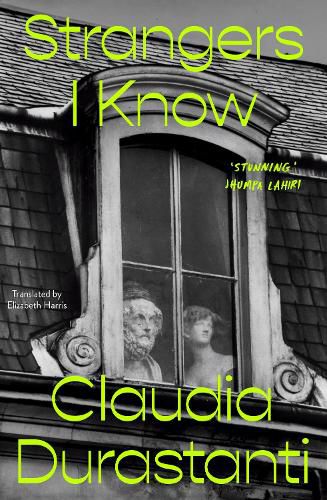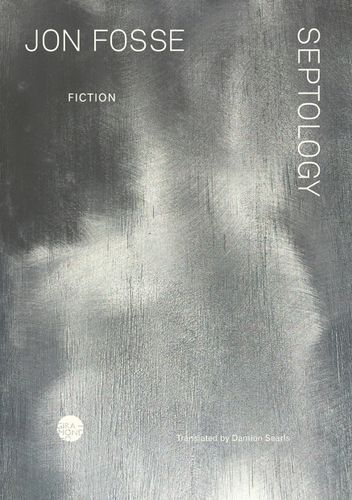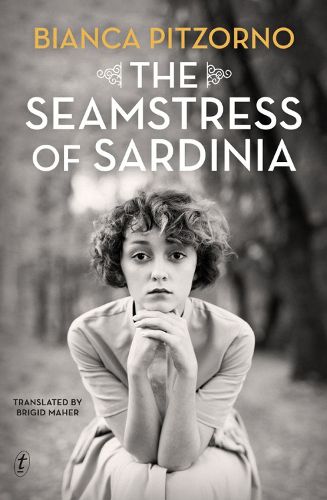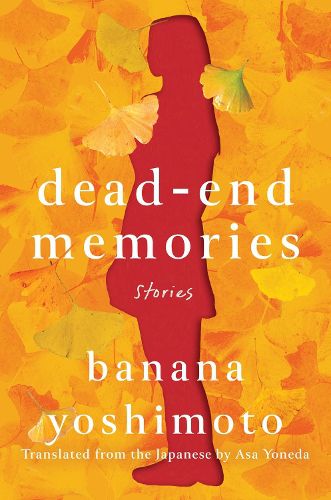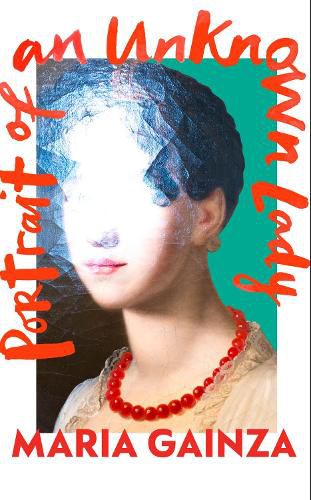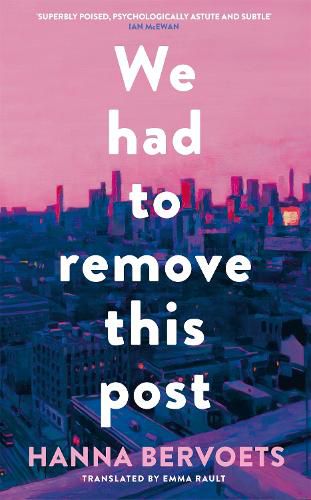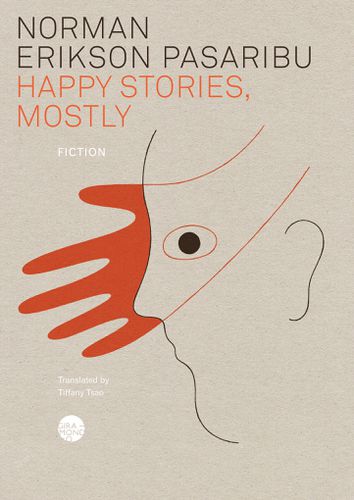We've been spoiled for choice with translated fiction in 2022, so choosing our favourites was a near impossible task, but we managed it. Our favourite works of translated fiction for the year (limiting ourselves to just twenty) include books from Japan, Catalonia, India and more.
Tomb of Sand by Geetanjali Shree, translated from Hindi by Daisy Rockwell
Geetanjali Shree became the first Hindi writer to win the International Booker Prize with Tomb of Sand, a lively, garrulous epic centred on an 80-year-old widow who gains a new lease of life when she travels to Pakistan to confront the ghosts of her past.
Strewn with buoyant wordplay and sharp insights into the lives of women in modern-day India, Shree’s novel tackles the momentous history of the subcontinent with exuberance and verve.
All the Lovers in the Night by Mieko Kawakami, translated from Japanese by Sam Bett and David Boyd
Hot off an International Booker Prize shortlisting for the 2021 English edition of her novel, Heaven, Mieko Kawakami is showing no signs of stopping. Her latest book is a blistering contemporary story about a shy and lonely 35-year-old proofreader in Tokyo, who, in an attempt to shake off her drab exoskeleton, descends into a nocturnal world seeped in alcohol and light.
As with Heaven and Breasts and Eggs, Kawakami once again transports readers with her poetic and tactile prose that’s finely attuned to the bodies and emotions of contemporary Japanese women.
When I Sing, Mountains Dance by Irene Sola, translated from Catalan by Mara Faye Lethem
After their mountain-dwelling poet father dies, orphans Mia and Hilari grow up wild among the looming summits of the Pyrenees and the ghosts of the Spanish civil war. Winner of the European Union Prize, this kaleidoscopic novel shifts and shimmers between perspectives, from human to spirit, to animal, even to a cloud.
Deeply rooted in the Catalan landscape and history, the book’s lyricism and fierce imagination breathes life into one family’s story of grief.
The Picture Bride by Lee Geum-yi, translated from Korean by An Seon Jae
In Japanese-occupied Korea, three young women are sent to the village matchmaker to be paired with husbands who work far away in the plantations of Hawaii. Imagining their destination as an Edenic place of luck and plenty, they are shocked when they arrive to discover life there is anything but. Bestselling Korean author Lee Geum-yi’s generational portrait brings to life the lesser-known history of the Korean migrant community in Hawaii.
Reminiscent of the classic family stories of Amy Tan, this moving tale is anchored by the deep bonds of female friendship.
At the Breakfast Table by Defne Suman, translated from Turkish by Betsy Göksel
Set over the course of a single day, Defne Suman’s At the Breakfast Table follows one family and their guests on the eve of their matriarch’s 100th birthday.
What is meant to be a time of celebration is shattered when long-buried secrets are drawn out into the open. Suman’s compassionate look at a family cracking under the weight of history immerses readers in a rich world of vivid tastes, intricate relationships and achingly fallible characters.
The Old Woman with the Knife by Gu Byeong-Mo, translated from Korean by Chi-Young Kim
This savagely entertaining story of a 65-year-old female assassin who faces an unexpected threat in the twilight of her career blends thrilling action with the all-too-real challenges older women face in their workplaces and in society at large.
Framed by violence, the book’s beating, bruised heart is the character of Hornclaw, whose ruthless actions and melancholy vulnerabilities make her an unforgettable voice that readers will want to devour.
Paradais by Fernanda Melchor, translated from Spanish by Sophie Hughes
Mexican journalist Fernanda Melchor’s gripping debut Hurricane Season won her awards for its dazzling, visceral prose and unflinching look at femicide in a small Mexican village.
In this second novel, Melchor once again dives into the furious tornado of misogyny, in a story about two young men from different worlds who meet and conspire to commit a brutal crime. Written in torrents of stream-of-consciousness sentences, this short yet powerful read examines class, race and power with a furious scrutiny.
Scattered All Over the Earth by Yoko Tawada, translated from Japanese by Margaret Mitsutani
The first book of a planned trilogy, Yoko Tawada’s novel is set in a futuristic dystopia where Japan no longer exists due to climate change.
One of its refugees, Hiruko, teaches a pidgin language she invented in Northern Europe, but longs to find others who can speak her mother tongue. As she sets out on her search, she is joined by a cast of vivid characters each looking of something lost. Tawada won the National Book Award in 2018 for The Emissary. Their latest novel slyly plays with themes of language and migration, ultimately asking what happens to languages and culture when borders are annihilated, whether it be through globalisation or through climate failure.
Strangers I Know by Claudia Durastanti, translated from Italian by Elizabeth Harris
This mesmerising work of autofiction draws inspiration from Claudia Durastanti’s own life growing up as the child of parents who are deaf and who have wildly different memories of how they met. The result for the protagonist is growing up in a family where communication is chaotic, and her sense of identity is unmoored and bifurcated.
Formally dazzling and spectacularly original, Strangers I Know explores how language and family can shape our understanding of the world.
Our Share of the Night by Mariana Enríquez, translated from Spanish by Megan McDowell
This feverish combination of political commentary and pulpy, bloody horror dissects 30 years of Argentinian history through the life story of a young medium, Gaspar, and his dying father. Gaspar’s dark powers make him the target of The Order, a cult of wealthy members from all over the world who are on a ruthless hunt for father and son.
Sprawling and grand, Our Share of the Night is a genre-defying work that gleefully uses the trappings of different genres to pull apart the legacy of violence and trauma.
Septology by Jon Fosse, translated from Norwegian by Damion Searls
In a remarkable feat, two out of three volumes in Jon Fosse’s Septology cycle have been shortlisted for the International Booker Prize (The Other Name: Septology I-II in 2020 and A New Name: Septology VI-VII this year). Across these three volumes, Fosse’s magnum opus has explored the life of an ageing Norwegian painter and his doppelgänger as they ponder existential questions about death, love, light and shadow, faith and hopelessness.
Fortunately for readers, local Australian publisher Giramondo has brought all three books together in one glorious volume, a hypnotic odyssey of the human condition that had French newspaper Le Monde declaring Fosse ‘the Beckett of the twenty-first century’.
Diary of a Void by Emi Yagi, translated from Japanese by David Boyd
When Shibata jokingly tells a colleague she can’t clean up the dirty cups in the office because she’s pregnant, she finds her work life improves dramatically. Suddenly her sexist workmates care more about her wellbeing, and stop asking her to fetch tea or work overtime. But how long can she keep up the hoax?
This wry social farce delights with its witty critique of working conditions for Japanese women, and will be relished by readers interested in the growing canon of fiction that explores motherhood and women’s labour.
Bitter Orange Tree by Jokha Alharthi, translated from Arabic by Marilyn Booth
Omani author Jokha Alharthi won the 2019 International Booker Prize for her multigenerational novel Celestial Bodies, and she stuns again with another fascinating addition to Omani literature.
Bitter Orange Tree is about a young student studying abroad in the UK, who oscillates between the disorienting cosmopolitism of her present and her memories of the past in Oman, particularly around the woman she considered her grandmother. The result is a smaller, quieter experience than Alharthi’s previous novel, but one that still seamlessly skips between past and present and retains a sensitive eye for the interior lives of young Omani professionals.
The Seamstress of Sardinia by Bianca Pitzorno, translated from Italian by Brigid Maher
A sleeper hit of 2022, this moving story explores class and gender in 20th-century Italy through the life of one woman.
In 1900, at five years of age, the narrator is taken under the care of her Nonna after her parents perish in a pandemic. As she grows up, she works towards a life of greater freedom through her skills as a seamstress and with the support of other independent women. Full of textural details, sparkling dialogue and deftly embroidered social observations, this book is a delicious historical confection to be savoured – one that perfectly mixes the sweet and the tart.
Dead-End Stories by Banana Yoshimoto, translated from Japanese by Asa Yoneda
Banana Yoshimoto’s acclaimed 1988 book Kitchen is a favourite among Readings booksellers, and this highly anticipated collection of short stories from 2003, translated here in English for the first time, doesn’t disappoint.
Across 250 pages, Yoshimoto tells five stories, each of them focused on a woman whose life is being recalibrated in small and quiet ways. Filled with Yoshimoto’s characteristic gentleness, her nourishing descriptions of food, and her ability to capture the caged kinetic energy of life’s pivotal moments, this gleaming collection of prose will delight both fans of Japanese fiction and new readers looking for an entry point to translated works.
Portrait of an Unknown Lady by Maria Gainza, translated from Spanish by Thomas Bunstead
The heady world of Argentinian art scene comes to life in this dreamy, impressionistic portrait of the relationship between a master art forger, a young assistant and a corrupt art authenticator. At the centre of their delicious web of entanglement is the artist Mariette Lydis, one of the country’s greatest artists whose life is recounted through a fictionalised auction catalogue.
With its playful, experimental approach to narrative, Portrait of an Unknown Lady is a captivating, confounding interrogation of the relationship between artist and audience, and the place of authenticity in art.
We Had to Remove This Post by Hanna Bervoets, translated from Dutch by Emma Rault
In a world where our experience of the wider world is mediated by social media, what does it take to face the torrent of offensive and dangerous material that proliferates in its dark spaces? This Dutch novel explores the life Kayleigh, an online content moderator for a faceless mega-corp who follows a complex triage matrix of questions to determine if content should be removed or retained.
This subtle psychological drama slices its sharpened blade into the toxic world of big tech, unhealthy working conditions and the toll these spaces take on mental health. It's a gripping, topical exploration of work culture that will resonate with fans of Severance – both the Ling Ma novel and the recent television show.
Life Ceremony by Sayaka Murata, translated from Japanese by Ginny Tapley Takemori
Dripping in alienation and the uncanny, this collection explodes various social norms and taboos. Sayaka Murata presents macabre visions, such as a society where funerals have been replaced with the ritual of eating the dead, or an engaged couple bickering over the use of human bodies for clothing, accessories and homewares.
It is unsurprising that the genius behind such cult classics as Convenience Store Woman and Earthlings would mix humour, body horror and the mundane in this way, and while these stories may disturb and unsettle, readers will find themselves paralysed by Murata’s vivid and indelible imagination, unable and unwilling to escape her grasp.
Happy Stories, Mostly by Norman Erikson Pasaribu, translated from Indonesian by Tiffany Tsao
This debut short-story collection by young queer Indonesian writer and poet Norman Erikson Pasaribu was longlisted for the 2022 International Booker Prize.
Told through a fundamentally queer lens, Happy Stories, Mostly tenderly asks what it means to be almost happy. From men’s lifestyle magazines to memories of Toy Story 3, the stories contained here speak to each other in surprising ways to destablise the pillars of a heteronormative world.
She and Her Cat by Makoto Shinkai & Naruki Nagakawa, translated from Japanese by Ginny Tapley Takemori and The Boy and the Dog by Seishu Hase, translated from Japanese by Alison Watts
There are two – yes two – new works of bestselling Japanese fiction are out this year for both the avowed Cat and Dog People out there.
She and Her Cat takes acclaimed Japanese artist Makoto Shinkai’s manga series and animations and spins delightful, sinuous stories of modern-day Tokyo life out of their deceptively simple premises. Against the backdrop of humming trains and softly trodden footpaths, this book shows uplifts the lives of four women and their feline companions.
Seishu Hase’s The Boy and the Dog is the heartwarming story of a stray dog – Tamon – separated from his beloved young boy owner in a devastating earthquake and tsunami. As Tamon makes his way through different households in his five-year journey, he acts as an agent of change and a gift to those who welcome in him into this life.





